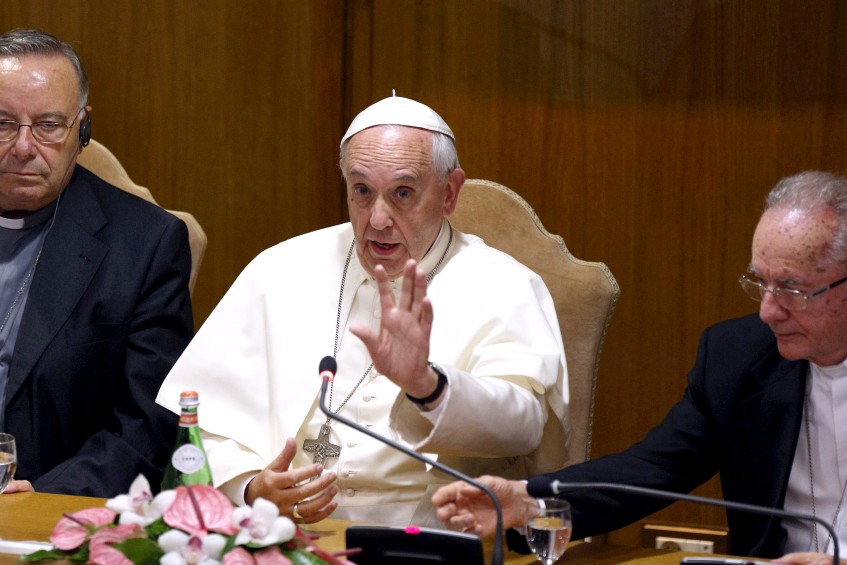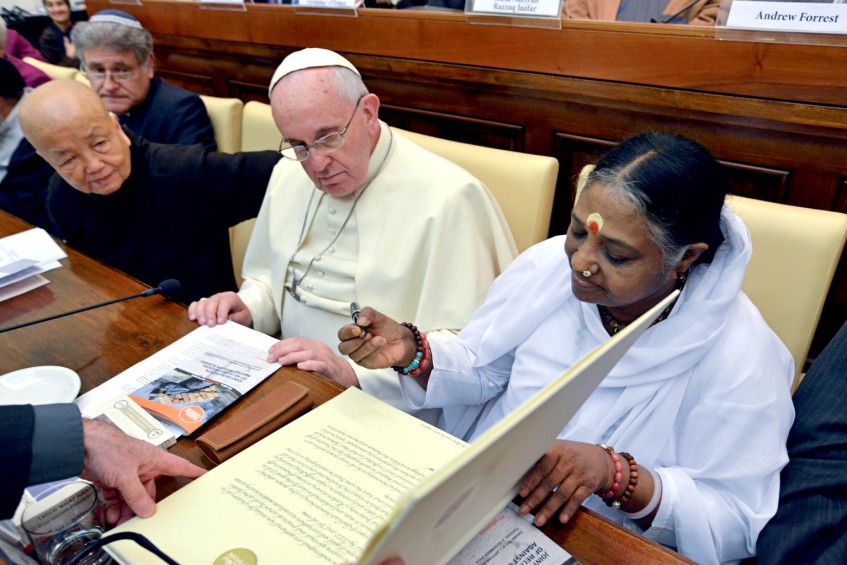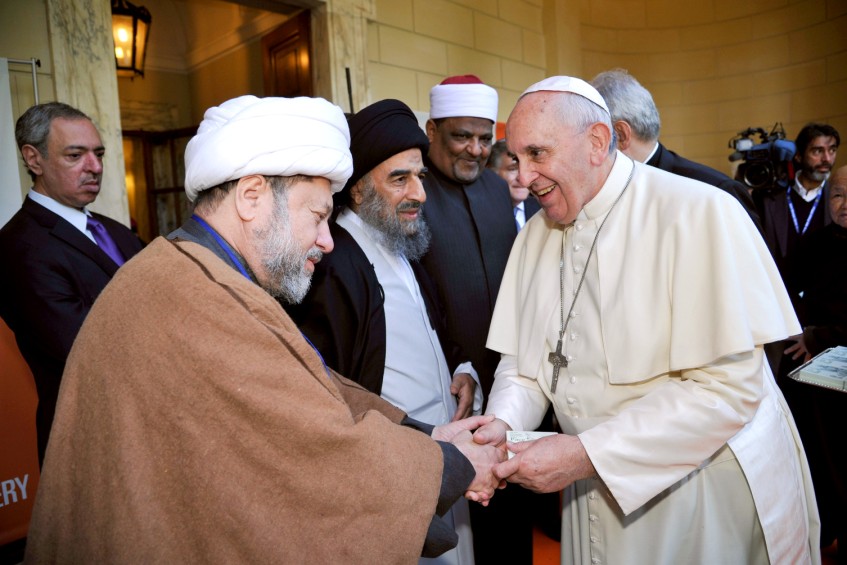ACRATH launches fundraising programme amid lost federal government funding

Pope Francis addresses mayors from around the world at a workshop on climate change and human trafficking in the synod hall at the Vatican on 21 July. Photo: Paul Haring/CNS.
ACRATH announced last month that it had lost yearly Federal Government funding for $125,000 as per 30 June.
To continue its work in combating human trafficking, modern-day slavery and forced marriages, ACRATH has launched a national fundraising appeal to raise $300,000.
Speaking to The eRecord, ACRATH representative Rosie Hoban said they relied on donations to make up the difference between Federal Government funding and the funding they need for their operational activities.
“The difference was made up from generous donations from congregations, parishes, schools, individuals and community groups,” Ms Hoban said.
However, ACRATH now has twice as big of a task to raise the amount of fund needed to continue their programme.
ACRATH’s Executive Officer Christine Carolan said the organisation was hopeful of
further government funding in the future but was now wholly reliant on the the generosity of the community.
“We are very disappointed that the government has not funded us for the coming year. However, we are hopeful that the community, particularly the Catholic community, will support our work,” Ms Carolan added.
“We have come so far, but in some ways, we are only just beginning to tackle emerging issues such as forced labour and forced marriage.”

Pope Francis and other faith leaders attend a ceremony at the Vatican in observance of the UN Day for the Abolition of Slavery on 2 December 2014. Photo: Chris Warde-Jones/CNS.
In December 2014 Pope Francis lamented modern slavery in the practice of human trafficking, forced labour, prostitution or the trafficking of organs as “a crime against humanity”.
“The victims of this are from every walk of life, but most are found among the poorest and the most vulnerable of our brothers and sisters,” the Supreme Pontiff said.
Two years ago, under Pope Francis’ leadership, the Vatican committed to taking action against human trafficking by slavery-proofing its supply chains.
Modern Slavery Bill was introduced to Federal Parliament on 28 June, which will require Australian businesses with consolidated revenue of more than $100 million to publish annual statements on the steps taken to address modern slavery in their supply chains and operations.
However, the bill has not outlined any penalties for non-compliant reporting behaviours from the businesses.
It is expected for the bill to be passed by the end of the year once Federal Parliament addressed penalties imposed for non-compliance.

Pope Francis greets other faith leaders following a ceremony at the Vatican in observance of the UN Day for the Abolition of Slavery on 2 December 2014. Photo: Chris Warde-Jones/CNS.
The Australian Catholic Bishops Conference (ACBC) acknowledged the long-term and expert work of ACRATH and the Archdiocese of Sydney’s Anti-Slavery Taskforce to achieve this outcome.
The Catholic bishops understand the legislation as a first step in national efforts against slavery, with further work needed both to establish an independent Anti-Slavery Commissioner, which will have the resources to eradicate modern slavery, hold large organisations accountable and introduce human rights due diligence on all public sector procurement.
President of ACBC Archbishop Mark Coleridge emphasised the importance of human dignity, which is unique to each human being, and foundation of all human rights.
“This human dignity is possessed by every human being, irrespective of their age, sex, race, abilities, or any other quality. Slavery destroys that dignity,” Archbishop Coleridge said.
To donate, go to www.acrath.org.au/donate
